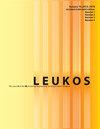Impact of Color Matching Primaries on Observer Matching: Part II – Observer Variability
IF 2.6
2区 工程技术
Q2 CONSTRUCTION & BUILDING TECHNOLOGY
引用次数: 6
Abstract
ABSTRACT In this study, the observer variability in a 10° achromatic color matching experiment using systematically different primaries under immersive, perceptually neutral (4673 K) and stable adapted viewing conditions have been investigated for four different sets of CIE color matching functions (CMFs). The matching reference was illuminated by a spectrally broadband light source at 70 cd/m2 and 4613 K. Fifty-four observers varying in age, gender, ethnicity and eye color participated. The results indicate that certain wavelength regions are more sensitive to generate interobserver variability, such as when a short wavelength primary (404 nm) was applied. Furthermore, of the primary sets investigated, that with peak-wavelengths (636–521–447 nm) close to the “typical” RGB-primaries widely known and used in industry had the smallest interobserver variability. In addition to the significant effect of primary set and CMF set, a significant effect of age on matching variability is also found, whereby the change of the blue primary resulted in a substantial difference in dispersion between younger and older observers, likely caused by age-induced yellowing of the lens. Furthermore, different primary sets tend to have a different impact on intra-observer variability than on interobserver variability. Finally, by comparing the observer variability in the current work with previous studies, the CIE standard deviate observer is found to substantially underestimate the interobserver variability, especially for the primary sets containing a 404 nm LED. Our observers also tend to have similar to smaller inter-variability than those reported in literature, possibly due to methodological differences.原色匹配对观察者匹配的影响:第二部分——观察者的可变性
摘要:在沉浸式、感知中性(4673 K)和稳定的适应观看条件下,采用系统不同的原色进行10°消色差配色实验,研究了四组不同的CIE配色函数(CMFs)对观察者的可变性。匹配基准用70cd /m2和4613k的光谱宽带光源照射。54名年龄、性别、种族和眼睛颜色各异的观察者参与了这项研究。结果表明,某些波长区域对观测者之间的变化更敏感,例如当波长较短(404 nm)时。此外,在被调查的原色集中,峰值波长(636-521-447 nm)接近“典型”rgb -工业中广泛使用的原色集具有最小的观察者间变异性。除了原色集和CMF集的显著影响外,年龄对匹配变异性也有显著影响,其中蓝色原色的变化导致了年轻和年长观察者之间色散的显著差异,这可能是由于年龄引起的晶状体变黄。此外,不同的原始集对观察者内部变异性的影响往往不同于对观察者之间变异性的影响。最后,通过将当前工作中的观察者可变性与先前的研究进行比较,发现CIE标准差观察者大大低估了观察者之间的可变性,特别是对于包含404 nm LED的主组。我们的观察者也倾向于具有类似于文献报道的较小的内部变异性,可能是由于方法上的差异。
本文章由计算机程序翻译,如有差异,请以英文原文为准。
求助全文
约1分钟内获得全文
求助全文
来源期刊

Leukos
工程技术-光学
CiteScore
7.60
自引率
5.60%
发文量
19
审稿时长
>12 weeks
期刊介绍:
The Illuminating Engineering Society of North America and our publisher Taylor & Francis make every effort to ensure the accuracy of all the information (the "Content") contained in our publications. However, The Illuminating Engineering Society of North America and our publisher Taylor & Francis, our agents, and our licensors make no representations or warranties whatsoever as to the accuracy, completeness, or suitability for any purpose of the Content. Any opinions and views expressed in this publication are the opinions and views of the authors, and are not the views of or endorsed by The Illuminating Engineering Society of North America and our publisher Taylor & Francis. The accuracy of the Content should not be relied upon and should be independently verified with primary sources of information. The Illuminating Engineering Society of North America and our publisher Taylor & Francis shall not be liable for any losses, actions, claims, proceedings, demands, costs, expenses, damages, and other liabilities whatsoever or howsoever caused arising directly or indirectly in connection with, in relation to, or arising out of the use of the Content. Terms & Conditions of access and use can be found at http://www.tandfonline.com/page/terms-and-conditions .
 求助内容:
求助内容: 应助结果提醒方式:
应助结果提醒方式:


